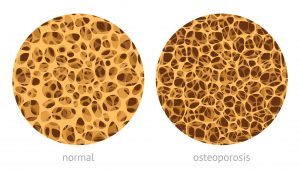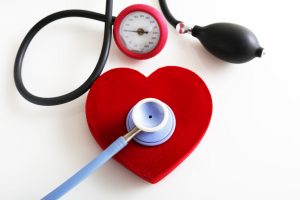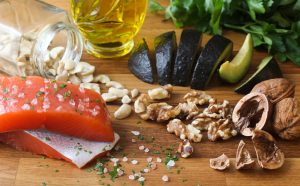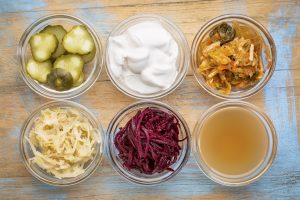Staying active is well-known for helping to maintain heart health. However, did you know that regular exercise may also benefit brain health? A recent study has found that exercising 2.5 hours a week, or 30 minutes a day for 5 days a week, may help slow progression of Parkinson’s disease.
Parkinson’s disease is a chronic and progressive movement disorder that may worsen over time. Therefore, medication and surgery have currently been used to treat and manage the symptoms of the condition. This condition involves the progressive death of brain cells, which leads to a decrease in dopamine levels in the blood. Lower dopamine levels result in a lessened ability to move. Therefore, since those with Parkinson’s disease lose dopamine over time, they may subsequently experience tremors, stiffness, and trouble with walking.
Exercise and Parkinson’s Disease
A recent study in the Journal of Parkinson’s Disease looked at the effects of exercise on the progression of Parkinson’s disease. After observing 3400 patients for over two years, those people with Parkinson’s disease who maintained exercise 150 minutes per week had a smaller decline in quality of life and mobility as compared to those who exercised less. The type of exercise that was of most benefit was not apparent. However, it is suggested that finding a type of exercise an individual enjoys will help them to maintain a regular exercise regimen and in turn will benefit them. Furthermore, by empowering those with Parkinson’s disease to engage in more exercise they enjoy, it may improve overall quality of life for these individuals.
Joint Pain and Quality of Life
Even if you do not have Parkinson’s disease, you may experience joint pain that limits your movement. Limited movement may in turn reduce quality of life by:
- affecting heart health
- making an individual more dependent on others for daily activities
- reducing the amount of serotonin”feel good” hormone produced
Therefore, it is important to find effective treatments for joint pain that will help make movement more comfortable. When movement is more comfortable, you will be more likely to engage in more activity, and in turn will gain the most health benefits. Also, the American Psychological Association has reported that regular exercise may help reduce panic in those with anxiety and improve mood in those with depression. Furthermore, regular exercise has been found to normalize sleep patterns, which in turn can make it easier for the body and mind to handle stress.
Some effective treatments for joint pain include:
- CDC Self-management programs
- Acupuncture
- Non-steroidal anti-inflammatory medications
- Water-based exercises such as swimming
- Supplements such as glucosamine or Flexova
Furthermore, Flexova contains a blend of B vitamins, vitamin C, vitamin A, as well as glucosamine sulfate and chondroitin sulfate that helps to reduce joint pain and improve joint mobility. Therefore, for more information on Flexova and other high quality supplements that can help improve your quality of life, visit Vita Sciences.
-written by Staci Gulbin, MS, MEd, RD, LDN
Sources :
Arthritis Foundation (accessed 2017 April 2) “25 Treatments for Hip and Arthritis Pain” http://www.arthritis.org/living-with-arthritis/pain-management/tips/25-treatments-for-hip-knee-oa.php
Centers for Disease Control (2017 March 7) “Living with Severe Joint Pain” https://www.cdc.gov/features/arthritis-quality-life/
Parkinson’s Disease Foundation (accessed 2017 April 2) “What is Parkinson’s Disease?” http://www.pdf.org/about_pd
Preidt, R. (2017 March 29) “Exercising 2.5 Hours a Week May Slow Parkinson’s Progress” https://medlineplus.gov/news/fullstory_164357.html
Weir, K. (2011 December) “The Exercise Effect” American Psychological Association. http://www.apa.org/monitor/2011/12/exercise.aspx
 seeds, olive oil, olives, and avocado as well as fatty fish like salmon, lake trout, and sardines contain unsaturated fats. The Mediterranean diet contains nearly half of all calories consumed coming from such healthy fats. The Mediterranean diet involves not only consumption of healthy fats, but also eating:
seeds, olive oil, olives, and avocado as well as fatty fish like salmon, lake trout, and sardines contain unsaturated fats. The Mediterranean diet contains nearly half of all calories consumed coming from such healthy fats. The Mediterranean diet involves not only consumption of healthy fats, but also eating:

 1.) Lower your sodium intake. A recent study of the U.S. National Health and Nutrition Examination Survey looked at salt intake and high blood pressure, also known as hypertension. Between 1999 and 2012, the sodium intake of those with hypertension rose nearly 14-percent from 2900 to 3350 milligrams daily. The recommended sodium intake for those with hypertension is 1500 milligrams a day, while those without hypertension should limit intake to 2300 milligrams daily. It is important to note that that 2300 milligrams of sodium is equal to just one teaspoon of salt. Furthermore, reports show that three-fourths of the sodium most people consume daily is not from added salt. Instead, most excess sodium intake is from consuming processed food products. Therefore, it is important to limit prepackaged foods such as:
1.) Lower your sodium intake. A recent study of the U.S. National Health and Nutrition Examination Survey looked at salt intake and high blood pressure, also known as hypertension. Between 1999 and 2012, the sodium intake of those with hypertension rose nearly 14-percent from 2900 to 3350 milligrams daily. The recommended sodium intake for those with hypertension is 1500 milligrams a day, while those without hypertension should limit intake to 2300 milligrams daily. It is important to note that that 2300 milligrams of sodium is equal to just one teaspoon of salt. Furthermore, reports show that three-fourths of the sodium most people consume daily is not from added salt. Instead, most excess sodium intake is from consuming processed food products. Therefore, it is important to limit prepackaged foods such as:

 Are you one of the 30-percent of the American adults that skips breakfast? Time and time again you may have heard that breakfast is the most important meal of the day. A recent study has found that breakfast may improve heart health by reducing risk of heart disease.
Are you one of the 30-percent of the American adults that skips breakfast? Time and time again you may have heard that breakfast is the most important meal of the day. A recent study has found that breakfast may improve heart health by reducing risk of heart disease. risk of heart attacks and death by taking niacin with cholesterol-lowering medicine. Beets, beef liver, tuna, salmon, sunflower seeds, and peanuts all contain niacin. When taken as a supplement, however, keep intake levels below the upper limit of 50 milligrams. Otherwise, dangerous side effects such as liver damage and stomach ulcers may occur. However, niacin is a water-soluble vitamin excreted in the urine daily. Therefore, a person is unlikely to overdose on niacin.
risk of heart attacks and death by taking niacin with cholesterol-lowering medicine. Beets, beef liver, tuna, salmon, sunflower seeds, and peanuts all contain niacin. When taken as a supplement, however, keep intake levels below the upper limit of 50 milligrams. Otherwise, dangerous side effects such as liver damage and stomach ulcers may occur. However, niacin is a water-soluble vitamin excreted in the urine daily. Therefore, a person is unlikely to overdose on niacin. condition. Prevention is key, so start taking charge of your heart health today.
condition. Prevention is key, so start taking charge of your heart health today. foods. This is done by using microorganisms such as yeast or bacteria under the absence of free oxygen. As a result, the fermentation process can lead to increased concentration of vitamins and nutrients in the final product. In addition, other benefits of fermented foods include enhanced flavor and increased digestibility. Finally, it is important to note that fermented foods are only probiotics if the bacteria culture survives long enough to provide benefits to the GI tract.
foods. This is done by using microorganisms such as yeast or bacteria under the absence of free oxygen. As a result, the fermentation process can lead to increased concentration of vitamins and nutrients in the final product. In addition, other benefits of fermented foods include enhanced flavor and increased digestibility. Finally, it is important to note that fermented foods are only probiotics if the bacteria culture survives long enough to provide benefits to the GI tract.